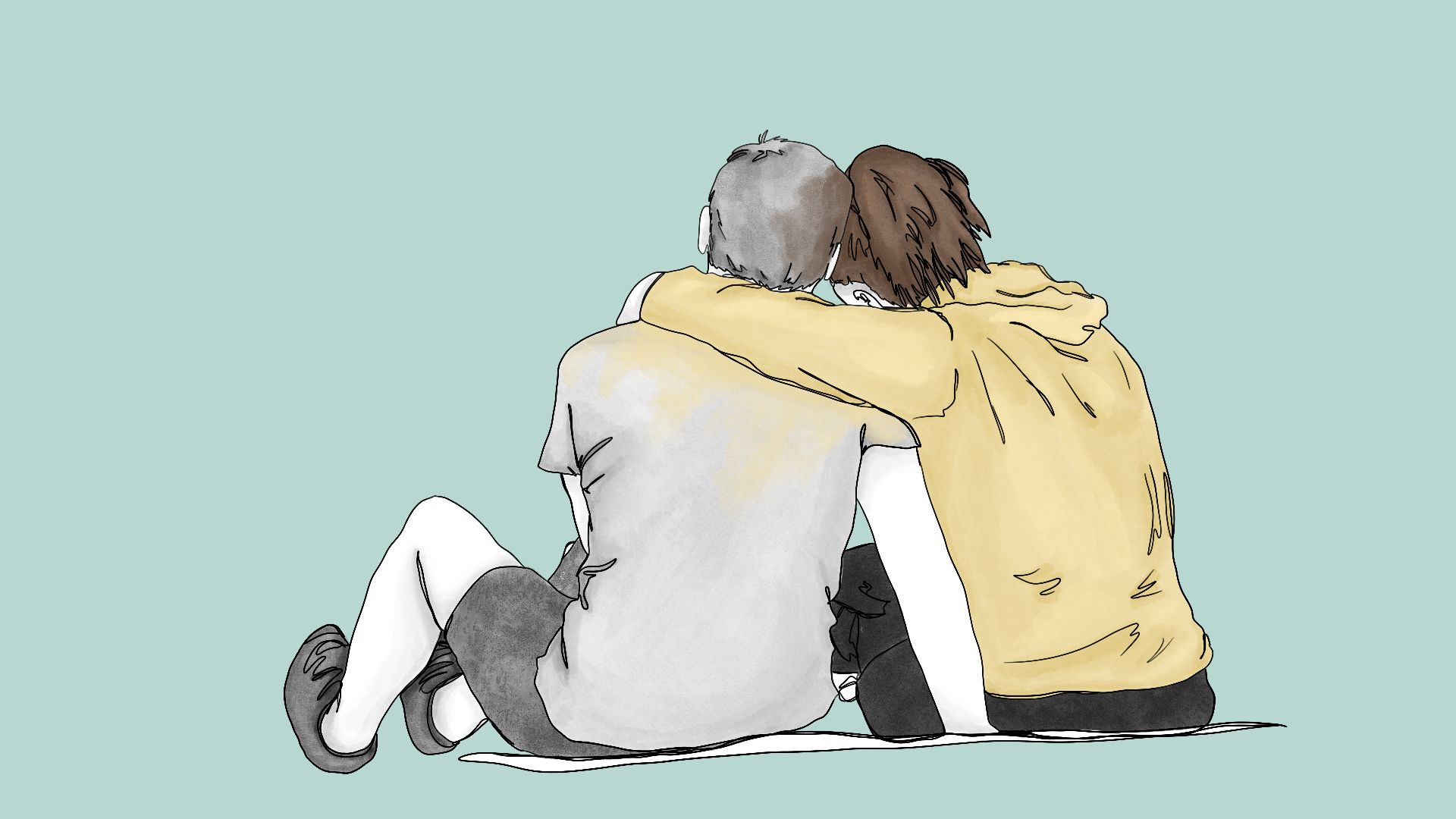Common grief reactions
Sadness, fear, loneliness, unreality, anger, guilt, relief, and indifference are all common grief reactions. Some people experience these reactions immediately, while others may experience them for a long time afterward.
Grief is not only experienced as emotions but can also weaken us physically. Sleep problems, fatigue, body aches, and decreased resistance to infections are common.
Grief reactions are often complex
It is common to feel both sadness and relief, for example, when someone dies after a prolonged illness. Sudden deaths such as accidents and suicides often result in complicated reactions where anger, guilt, and shame are common. Many people who experience loss also feel guilt, perhaps for something they said or never had a chance to say to the deceased, or for not feeling sad enough. Guilt can also arise when trying to do enjoyable things or forgetting to think about the deceased.
We react differently
Some mourners may find it difficult to approach their sad emotions. Perhaps because it hurts so much, they are afraid that the feeling will completely take over and interfere with important tasks in their lives. Consequently, they immerse themselves in tasks and activities and do not give grief space.
Others may find that they are unable to do things they used to do before the death, lose motivation to study, work, or socialize. Concentration and memory problems are common for grieving individuals.
Extra difficulties with unexpected and sudden deaths
When a person dies without warning, the bereaved do not have the opportunity to prepare themselves. This can impact grief reactions. Many people describe a sense of unreality in the immediate aftermath of learning about the death.
Individuals who have been present during sudden or unexpected deaths often have a need to recount the details of what happened. It is not uncommon to want to relive what happened several times in the immediate period after the death.
Suicide
In the case of suicide, it can be particularly distressing that someone close to you has experienced life as so difficult that they chose to end it. Some may feel partially responsible because they believe they should have recognized the danger and contributed to suicide prevention. Many bereaved individuals are left with unanswered questions about why the suicide happened and may carry this burden for years or even for the rest of their lives.
Difficulties in interacting with other people
Many people have experienced losing an elderly family member, but fewer experience losing a parent, sibling, or friend at a young age. Therefore, such grief can be incredibly isolating since there aren't many people around with a similar experience. It can make it difficult to talk about grief with friends, perhaps for fear of creating a sad atmosphere or because of thoughts that others won't understand, leaving one alone with thoughts and grief.
Stages of grief
Grief can have different stages. The first stage is often referred to as the shock phase, where one tries to understand what has happened. When this phase passes, a reaction phase often follows, characterized by crying, sadness, protest ("it's not true"), or anger. Many people then transition into a processing phase where reactions are put into perspective, and the realization that the person has died begins to sink in. The final phase is often referred to as the reorientation phase, where life begins to fall back into place, and one manages to look forward more.
Not everyone goes through all these stages. How one experiences the stages is also individual, and it is common to move back and forth between them.
Advice for those grieving
Grieving takes time and effort, and often you need support from others. Here are some tips on how to get through the grief:
It's important to allow yourself to feel what you feel and be prepared for the emotions to change. Remember that there is no right or wrong way to react, as it is completely individual.
Take care of your nutrition and sleep, even if everything feels indifferent.
It can be helpful to cry, and it's often comforting to have someone to cry with.
Allow yourself to spend time thinking about the person who has passed away and the moments you shared. Talk to others who were close to the deceased or who have experienced the loss of someone they loved.
When the grief becomes particularly heavy, it's important to reach out to someone you can talk to. It could be people you trust in your community or in the support system.
It can be beneficial to try to return to routines and normal life. Go to school, work, participate in hobbies, and spend time with friends. This helps prevent being consumed by heavy thoughts all the time.
It's okay to feel angry and sad, and it can be helpful to express these emotions by talking to someone, writing in a journal, or engaging in physical exercise.
It's okay to laugh. Even though you and those around you are grieving, it's important to take a break from sorrow. It's okay to have fun with your friends even if you're feeling sad, without feeling guilty about it.
If you feel guilty about something that was said or should have been said while the deceased was still alive, it can be helpful to talk to someone you trust, so you're not alone with these thoughts.
It's especially important to seek help if grief negatively affects your daily life over an extended period or if you don't experience any relief or variation in intense emotions.
Safe conversation partner
If you're a grieving student, talking to a trusted conversation partner can help you. Many students who participate in grief support groups say it has been a good way to give space to their grief, express their thoughts and feelings in words, and receive support and camaraderie from others who have experienced loss.
